Saturday Feb 21, 2026
Saturday Feb 21, 2026
Thursday, 21 September 2023 02:05 - - {{hitsCtrl.values.hits}}
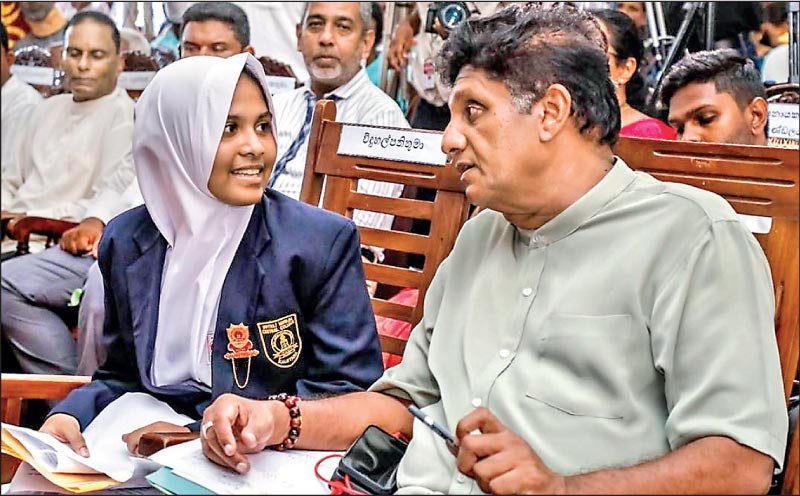
Pluralist Centrist candidate
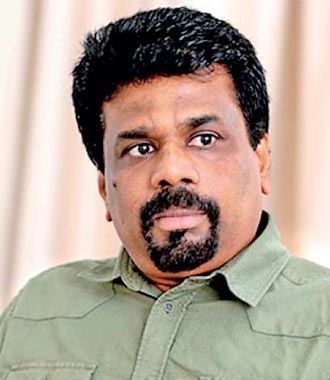
AKD: A Left 1956?
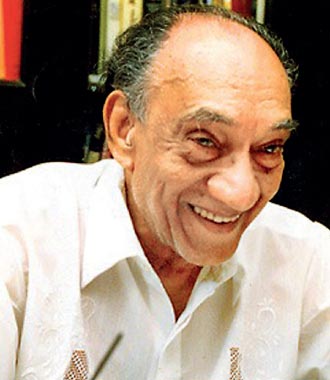
JRJ: High growth, low equity
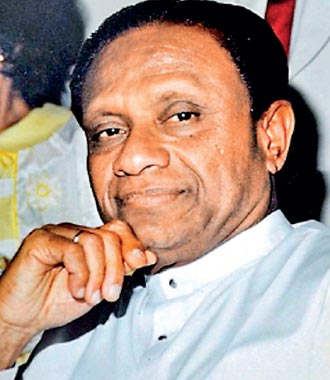
Premadasa: High growth, high equity
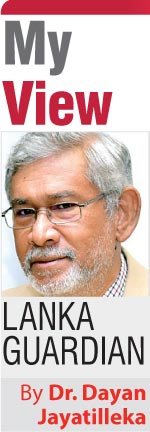 With only 28% of those polled being positive about President Wickremesinghe’s IMF program, of which only 15% believe it would make things ‘better both now and in the future’, why would anyone think Ranil could win an election next year? (Less than 30% think IMF program will improve economy in future: Verité Research | Daily FT)
With only 28% of those polled being positive about President Wickremesinghe’s IMF program, of which only 15% believe it would make things ‘better both now and in the future’, why would anyone think Ranil could win an election next year? (Less than 30% think IMF program will improve economy in future: Verité Research | Daily FT)
There’s more: “Approximately 45% of Sri Lankans believe the USD 2.9 billion Extended Fund Facility (EFF) programme of the International Monetary Fund (IMF) will make things worse for the economy in the future, according to a new survey by Verité Research.” (45% of Sri Lankans pessimistic about IMF programme: Verité Research - Breaking News | Daily Mirror)
That leaves only 5% more for the 50.01% necessary to be elected President. That’ll come easy because 55.7% of citizens are ‘multidimensionally vulnerable’ (UNDP). A decisive majority will vote for anyone who is most likely to liberate them from economic pain and pressure as rapidly as possible, not for the status quo or anyone who argues for/represents continuity with it.
Coomaraswamy’s autocratic economism
At the UNP HQ, party chairman Vajira Abeywardena told the media (14 Sept. 2023) that if allocation is made for elections in the upcoming National Budget for 2024, it would risk the return of petrol diesel and gas shortages. He recommends that “the economy be strengthened first before the question of elections is raised”. Dr. Nalaka Godahewa scoffed at his arithmetic, emphasising that payment for an election is in rupees, but for imports, in hard currency. Prof. G.L. Peiris, Ranil’s teacher at the Law Faculty has rightly excoriated the larger implications. (Ranil cannot remain in post after Oct. 2024: G.L. | Daily FT)
This kite-flying becomes far more serious a proposition because it overlaps with the intellectual argumentation of someone who is in every other respect, Vajira Abeywardena’s polar opposite. That’s Dr Indrajit Coomaraswamy, former Governor of the Central Bank and one of President Wickremesinghe’s advisors.
|
Indrajit’s anti-elections argument
|
In a recent presentation, Indrajit posits a zero-sum game between elections on the one hand and economic stabilisation and growth on the other (Sri Lanka must not allow elections to distract from stabilisation: ex-central bank chief | EconomyNext). By contrast, Nobel Prize winning economic thinkers underscore the importance of elections as feedback loops and providers of legitimacy for economic reform.
If he merely means that elections should not derail the economic stabilisation agenda, he should have said so, using the considerable resources of the English language he commands. Instead, he has used the infelicitous term “distract”. Even worse, Indrajit has posited a negative relationship “historically” between the holding of elections and “the progress” made under IMF programmes.
Coomaraswamy registers “Sri Lanka’s election calendar” as a risk; a negative factor. His clearly amounts to an argument against rather than for the elections due next year.
‘If Sri Lanka allows elections to distract from the path of recovery, stabilisation and growth, the country will be hit by a fresh crisis far worse than any before, former central bank governor Indrajit Coomaraswamy said.
Speaking at a forum organised by Cal, a Colombo-based investment banking group, Coomaraswamy said on Tuesday September 05 that Sri Lanka’s election calendar has historically resulted in the reversal of progress made under the 16 International Monetary Fund (IMF) programmes that the island nation had undergone until the latest extended fund facility (EFF).
“Every single time there has been an election, Sri Lanka’s macroeconomic policies have become indisciplined. We’ve had 16 IMF programmes before the current one. On many of them we did make progress in stabilisation as we have done on this one. But as soon as an election approached, the progress that was made was reversed,” said Coomaraswamy.
“We’re supposed to be having elections next year. I hope we don’t have the same thing again. We must not allow the gains that we have made to be reversed through policy slippage,” he said.
…The electoral calendar was among a series of risks that Coomaraswamy identified as possible obstacles to Sri Lanka’s recovery.’ (ibid)
“Every single time there has been an election, Sri Lanka’s macroeconomic policies have become indisciplined” states Indrajit with no little vehemence. Does this mean that every single time we have had an election whenever an IMF program was ongoing—and that’s 16 programs—we should not have done so?
Hasn’t it occurred to him that if an administration pulled back on full implementation as the election approached, it was because it was registering public opinion feedback, the overriding of which could generate social dissonance more damaging systemically than backtracking or breaking-off from an agreement with the IMF?
Indrajit’s argument that “an election” causes “macroeconomic indiscipline” is arrant nonsense. President Premadasa had elections including to newly minted local authorities and the macroeconomy did fine.
“We’re supposed to be having elections next year” says Indrajit. “Supposed to be having”? Doesn’t he know that the Constitution is unambiguous on that point? Does he think that we should allow an unelected President who wasn’t even elected to the parliament, to rule the country without an election for the sake of avoiding any possible backtracking on the IMF agreement?
What does the “historical” record actually show? In contradistinction to Indrajit’s assertion, it is not “an election” in accordance with the “electoral calendar” but it’s opposite, the non-holding of a General election scheduled for early 1983 and the extension of the parliamentary term by 6 years through a coercive referendum, that splashed the fuel of suppressed socioeconomic and democratic discontent on the racist fires of July 1983, drove a framed JVP underground, and detonated a second Southern insurrection--constituting the exogenous factors which capsized the 1977 open economy.
Regular, periodic, free and fair elections which allow the citizenry to choose their leaders from among competing alternatives being the core of democracy, what would the submission of the ‘indiscipline’ of elections to the ‘discipline’ of macroeconomics i.e., the suspension of elections, have turned Sri Lanka into systemically?
Dr. Coomaraswamy identifies two drivers of the economic ‘reform’ process: accelerated dismantling of state sector enterprises and implementation of the Ranil-Milinda Indianisation program.
‘…Coomaraswamy said the programme now under way to restructure state-owned enterprises (SOEs) is also critical and should ideally move faster.
“We need to use whatever political capital is necessary to give tailwind to this process,” he said…’ (Ibid)
‘… On Sri Lanka’s relations with India and proposals for a land bridge and grid connectivity on top of plans to improve sea and air connectivity, Coomaraswamy said Sri Lanka can benefit from increased connectivity with the Indian economy.
“We should make a concerted effort to piggyback onto the Indian story,” he said.’ (ibid)
The proposed all-round connectivity including a land-bridge will not only “piggyback” Sri Lanka onto the “Indian story”, it will result in the swallowing of the Sri Lanka story by the India story.
Indrajit Coomaraswamy made a robust defence of the IMF program in the face of the quantum leap in povertisation.
‘…Sri Lanka saw a 31% surge in poverty over the last four years – from 4 million people in 2019 to 7 million in 2023, according to a study by LIRNEasia – and a number of reports have come out on increased vulnerability, child malnutrition and other indicators of socioeconomic deterioration. Coomaraswamy, while recognising this, said however that the MF cannot be blamed. The ongoing anti-IMF rhetoric has centred its messaging around the IMF, laying the blame for all of Sri Lanka’s ongoing ills at its door.
“People blame the IMF programme...you can’t blame the IMF programme. These problems were there because of the hole we had fallen into and that hole was caused by various things which everybody knows,” he said, declining to elaborate on the causes.’ (Ibid, Colombo/Sep08/2023)
This is downright disingenuous because the “hole we had fallen into” was considerably enlarged and deepened, if not created at least in part, by the massive borrowings from the private money markets (the ISBs) during Ranil Wickremesinghe’s stewardship of the economy and Indrajit Coomaraswamy’s governorship of the Central Bank. Right now, the most intractable node of this country’s debt crisis is that of the private creditors.
Failure of JR’s economics
President Wickremesinghe got it wrong again, this time speaking about President JR Jayewardene’s economic philosophy.
“In a message on the birth anniversary of late President J.R. Jayewardene, President Ranil Wickremesinghe said if Sri Lanka had been able to sustain the socio-economic reforms initiated by the late President in 1977, the nation would be a developed country today…President Wickremesinghe emphasised that challenges such as riots, terrorism and the failure to fully grasp the philosophy, hindered the complete success of these reforms.”
This is an especially dangerous, a-historical untruth.
 The closed economy/low growth model bred the first anti-systemic insurrection.
The closed economy/low growth model bred the first anti-systemic insurrection.
 The open economy/high inequity model underlay the second civil war, though its trigger was the scrapping of a scheduled General Election and the perceived sellout of sovereignty to India.
The open economy/high inequity model underlay the second civil war, though its trigger was the scrapping of a scheduled General Election and the perceived sellout of sovereignty to India.
 Both Sirima-NM and JRJ models failed; caused crises and bloodbaths.
Both Sirima-NM and JRJ models failed; caused crises and bloodbaths.
 Only a third model eliminated both inbuilt structural weaknesses—low growth and high inequity respectively—yielding a synthesis of high growth/high equity. That was the Premadasa model (1989-1993).
Only a third model eliminated both inbuilt structural weaknesses—low growth and high inequity respectively—yielding a synthesis of high growth/high equity. That was the Premadasa model (1989-1993).
It was not the departure from the 1977 Open Economy of JR Jayewardene that took us into today’s crisis. The inequities of that economic model, and the induced coma of the electoral process through Referendum ‘82, caused the “riots” and “terrorism” that Ranil talks about. There was no “failure to fully grasp the philosophy”. There was the UNP government’s “failure to fully grasp” the consequences of the Jayewardene economic philosophy, though Prime Minister Premadasa kept warning about it publicly from 1977-1978 itself.
The Jayewardene economic strategy had to be drastically remodelled, transformed, because of the experience of the second southern civil war. The imperative transition was to Premadasa’s re-balanced ‘growth with equity’ model.
If as Ranil advocates, we had continued with the 1977 Jayewardene model, we’d have been living under Pol Pot-style socialism. UNP right-wingers Ranil Wickremesinghe, Ravi Jayewardene, Lalith Athulathmudali and Gamani Dissanayake tried to outshoot the JVP’s second uprising and failed (1986-1988). The JVP’s barbaric second insurrection was put down because the Premadasa economic model, spearheaded by Janasaviya (commencing in the ‘red base’ Hambantota district), grappled with the rebellion’s socioeconomic roots. Having thereby socially outmanoeuvred and isolated the JVP, the Ops Combine headed by Ranjan Wijeratne and reporting to Sirisena Cooray terminated the civil war within a year (1989).
As Prof. Howard Nicholas and Bram Nicholas have repeatedly proved, the current crisis has its roots in (a) the abandonment of the Premadasa model after his assassination and (b) the non-return to it by Ranil’s UNP administrations, while (c) it is the Premadasa strategy that shows the exit from the crisis to a broadly ASEAN-type economic future.
The SJB economists misrepresent the Premadasa model as a mere extension/deepening of JR’s 1977 Open Economy. However, it was a different developmental paradigm. As SAARC Chairperson articulating his economic ideas to the vast region, Premadasa re-published in the Ceylon Daily News his distinctive economic philosophy presented on April 4th 1973 and originally published in the CDN that week (by my father). Reproduced in 1991 it was significantly accompanied by an Introduction in bold type:
‘The seeds of today’s concepts were sown years ago…President Ranasinghe Premadasa, then First Member of Parliament for Colombo Central was invited by the Colombo West Rotary Club to deliver an address on the topic ‘A Plan For Sri Lanka’ at a luncheon meeting of the Club. The speech was delivered when President Premadasa was only an Opposition member of Parliament and portrays the vision of a young politician of what he thought was the best for Sri Lanka.’ (CDN Nov. 21, 1991).
Political sociology of NPP
The SJB cannot discern the new political sociology the NPP represents, though Ranasinghe Premadasa would surely have. The JVP-NPP bloc comprises of and articulates the perspective of generational layers of graduates of the state universities who have also served in the state institutions not only as unionised employees but as professionals at the top layers of management of the state ranging from the medical to the military sectors. This is the vast Sri Lankan middle-class, upwardly mobile through meritocratic free education, with organic roots in the provinces, the rural areas, the peasantry.
Just as S.W.R.D. Bandaranaike’s SLFP put together a new social bloc –the ‘Pancha Maha Balavegaya’—in 1956, the JVP-NPP has configured itself as a formation which represents a widespread yet deep-rooted social force with its own autonomous progressive, patriotic worldview and policy perspective.
Unlike the SJB and UNP, the social force that has assembled around the NPP appreciates the Sri Lankan state and its presence in the economy as a balancing factor vis-à-vis private capital. Unlike the SJB which hardly uses the term, the NPP professionals and recent retirees value ‘the public sector’.
It is not a dogmatic fetishising of statism, because these strata know just how much the state enterprises and processes have been distorted by political patronage—and they have often been victims. But they also know how the state enterprises could be viable and productive under a meritocratic managerialism.
The JVP-NPP’s project is to revive the economy and develop the country from the bottom-up and inside-out.
A core conceptual paragraph of the Declaration of the ‘G-77 & China’ Summit just concluded in Havana, Cuba, lends support to the economic perspective of the NPP-JVP, FPC and CPSL:
“We note the central role of Governments, with the active contribution from stakeholders from the private sector, civil society, academia and research institutions, in creating and supporting an enabling environment at all levels, including enabling regulatory and governance frameworks, in accordance with national priorities, to nurture science, innovation, entrepreneurship and the dissemination of knowledge and technologies, particularly to micro, small and medium-sized enterprises, as well as industrial diversification and value added to commodities.” (Para 27)
A ‘Left 1956’ is possible, but AKD and the JVP-NPP must ask and answer the following questions:
 Can it secure Presidential election 2024 from a reluctant ruler who is recycling the draconian Anti-Terrorism Act under which the JVP or its unions can conceivably be banned before the election, without a common platform of resistance with all Opposition parties including the FSP?
Can it secure Presidential election 2024 from a reluctant ruler who is recycling the draconian Anti-Terrorism Act under which the JVP or its unions can conceivably be banned before the election, without a common platform of resistance with all Opposition parties including the FSP?
 Can it win an election when there is no elected leftist administration in the world which has not been a coalition of parties under left leadership?
Can it win an election when there is no elected leftist administration in the world which has not been a coalition of parties under left leadership?
 Even if it does win an election, can it prevent a Bolivia 2019 or Myanmar 2021 counterrevolutionary overturn unless it heads a coalition broad enough to provide an overwhelming percentage of mass support?
Even if it does win an election, can it prevent a Bolivia 2019 or Myanmar 2021 counterrevolutionary overturn unless it heads a coalition broad enough to provide an overwhelming percentage of mass support?
Any party which sincerely accepts representative democracy, accepts that in a pluralist society it doesn’t and can’t represent all the people. Therefore, it enters relationships, partnerships, with other political parties.
In the vortex of the crisis, what stands between Sajith and a ‘1988 outcome’ is his economic troika of Ranil (policy) clones. What stands between Anura and a ‘1956 outcome’ is a ‘unilateralist’ deviation; an allergy to United Fronts (including of the Left).